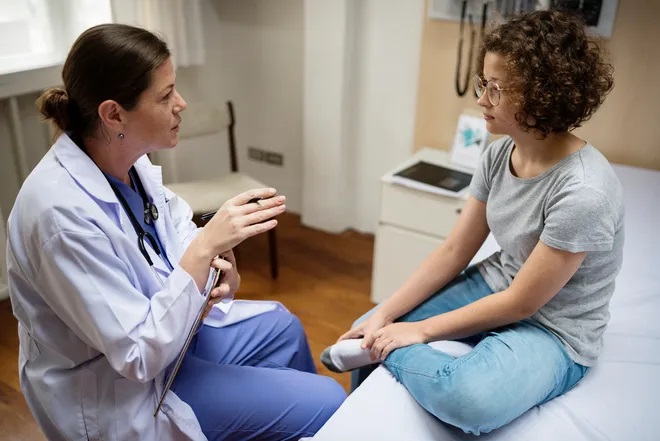
17, Jan 2024
January marks the start of a new year, and as Cervical Health Awareness month, it also serves as an opportunity to raise awareness and is a perfect reminder about important steps you can take to protect yourselves by getting screened for cervical cancer.
Each year in the United States, about 14,000 new cases of cervical cancer are diagnosed. More than 4,000 women die of this cancer.
Yet cervical cancer is one of the few cancers that’s almost preventable with screening and human papillomavirus (HPV) vaccination.
Everyone with a uterus is at risk of cervical cancer, but it occurs most often in individuals over the age of 30 years old.
Almost all cervical cancers are caused by HPV, a common virus.
HPV, a common virus that spreads through sexual activity, causes cervical cancer.
About 80 percent of sexually active individuals become infected with HPV at some point in their lives, but most don’t even know they have the virus.
If the HPV infection does not resolve on its own, there is a chance that, over time, it may develop into cervical cancer.
Besides cervical cancer, HPV can also lead to anal, penile, vaginal, vulvar and oropharyngeal cancers.
Screening is important because there are no signs or symptoms of early cervical cancer.
However, it can be detected through routine cervical cancer screenings. You can do your part to help prevent cervical cancer by scheduling your screening appointment as soon as possible.
Cervical cancer screening is highly effective in detecting abnormal cells in the cervix. Cervical cancer is easily treatable if caught early on.
Routine cervical cancer screening tests include the Pap test, also called Pap smear or HPV test. A Pap test, which is done in conjunction with a female pelvic exam, can help detect abnormal or altered cells early on before they turn into cancer.
Screening can find a change in the cervix early, when it is easier to treat and before cancer has developed.
The United States Preventive Services Task Force recommends the following options for cervical cancer screening:
The risk of cervical cancer may be even higher for smokers, immunocompromised individuals, people who have an HPV infection that does not go away on its own, and sexually active people at a young age and those who have multiple sexual partners.
To reduce the risk of cancer, HPV vaccination is recommended for preteens ages 11-12 years. The HPV vaccine can be given up until age 26 and can be started as young as 9 years old.
Vaccination is recommended for everyone in this age range to help prevent the spread of HPV and reduce the risk of HPV-related cancers in the future.
Regular cervical cancer screening is recommended even for those who have received the HPV vaccine.
HPV vaccines help prevent the infection that causes most cervical cancers. Refer to Centers for Disease Control guidelines for further detailed recommendations of the HPV vaccine.
Get screened. Why wait?
Call your health care provider to seek help in learning the risks, and prevention of cervical cancer.
Dr. Sue Mitra and her staff strive to offer their patients the best care, advice and services available in the medical field with the goal to keep patient healthy & happy.

Dr. Sue Mitra is board certified in international medicine. She is seen here with a Cologuard, which is a noninvasive colon cancer screening test. (Photo by: Tim Shortt/Florida Today)